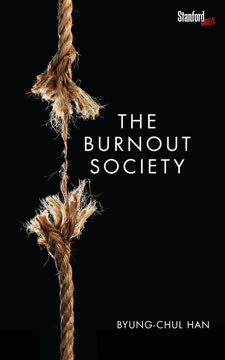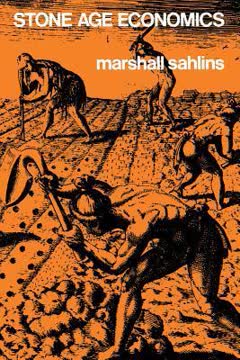Key Takeaways
1. The Western Illusion: Human Nature is Inherently Selfish and Needs Control
Time and again for more than two millennia the people we call "Western" have been haunted by the specter of their own inner being: an apparition of human nature so avaricious and contentious that, unless it is somehow governed, it will reduce society to anarchy.
A core Western belief. For over two thousand years, Western thought has been dominated by the idea that human nature is fundamentally selfish, greedy, and prone to conflict. This inherent depravity is seen as a constant threat, capable of dissolving society into chaos if left unchecked. This view contrasts sharply with many other cultures.
Politics as control. This pessimistic view of human nature has profoundly shaped Western political philosophy. Governance is often conceived as a necessary external force to restrain these destructive impulses. Two primary forms emerge:
- Hierarchy: A strong, external power (like a monarch or sovereign) imposes order.
- Equality: A system of balanced, opposing forces (like a republic) neutralizes self-interest.
Beyond politics. This isn't just about government; it's a total metaphysics of order. The same structure—anarchy resolved by hierarchy or equality—appears in Western ideas about the cosmos, the human body (e.g., humors), and even economic theory (e.g., rational choice). It posits a fundamental opposition between a wild, animalistic nature and a fragile, artificial culture.
2. Ancient Greek Roots: The Nature/Culture Dualism and Political Triangle
However, when it comes to determining which is the prime mover among the relevant cultural domains, the classicists, working on vaguely Durkheimian or Marxian principles of theory arising out of social practice, nearly all agree that politics is the fundamental condition.
Origins in Greek thought. The idea of human nature as inherently problematic, needing cultural constraint, can be traced back to ancient Greece. Hesiod lamented the "Age of Iron" where justice vanished, unleashing ruthless competition akin to a Hobbesian state of nature. The political triangle of anarchy, hierarchy, and equality is mirrored in Greek cosmogony, like Zeus imposing order on the unruly Titans.
Nature vs. Convention. The Sophists formalized this tension with the physis (nature) vs. nomos (convention/law) dualism. Physis was seen as the realm of inherent, often selfish, drives, while nomos was the artificial, often fragile, construct of human society. This framework suggested that culture was a mere veneer over a truer, darker natural reality.
Political manifestations. This dualism played out in Greek politics, particularly the conflict between oligarchic/monarchial rule (hierarchy) and democratic ideals (equality/isonomia). Thucydides' account of the civil war at Corcyra vividly illustrates the breakdown of nomos under the pressure of physis—greed, ambition, and the lust for power.
3. Medieval Monarchy: Original Sin Justifies Coercive Rule
Augustine's influential concept of Original Sin, observes Elaine Pagels, "offered an analysis of human nature that became, for better and worse, the heritage of all subsequent generations of Western Christians and a major influence on their psychological and political thinking."
Christian reinforcement. The Christian doctrine of Original Sin provided a powerful theological basis for the Western illusion of human depravity. Mankind's inherent wickedness, stemming from Adam's fall, meant that people were naturally inclined to sin and self-interest. This justified the necessity of external control.
Government as remedy. Society and government, particularly monarchy, were viewed as divinely sanctioned, coercive antidotes to this fallen state. Without rulers, people would "devour each other like fishes" or wild beasts, a common metaphor. The state's institutionalized violence was seen as indispensable for maintaining peace among the wicked.
Political Augustinism. This perspective, termed "political Augustinism," saw the king or ruler as a necessary, albeit sometimes flawed, instrument of God's providence, restraining human savagery. While some thinkers like Aquinas later introduced ideas of natural sociality, the core belief in man's inherent sinfulness and the need for external authority persisted, shaping medieval political thought.
4. Renaissance Republics: Self-Interest as a Source of Order
But in this republican context such malignant self-concern can have positive functions.
Republican revival. The Renaissance saw a resurgence of republican ideals, particularly in Italian city-states. Inspired by classical models, these republics emphasized civic virtue and self-governance, suggesting men could prescribe laws for themselves rather than merely obey a sovereign. However, internal factionalism remained a constant threat.
Machiavellian realism. Niccolò Machiavelli, observing the turbulent politics of his time, famously argued that civic greatness could arise from conflict, not just peace. He took man's inherent wickedness as a given, stating that in legislating for a commonwealth, "it must needs be taken for granted that all men are wicked."
Virtue from vice. Machiavelli's controversial insight was that the clash of self-interested factions, particularly between the popular and privileged classes, could paradoxically lead to laws favorable to liberty and the common good. This foreshadowed later ideas that individual self-interest, if properly channeled or balanced, could serve the collective.
5. Founding Fathers: The Hobbesian Republic of Balanced Powers
It may be a reflection of human nature that such devices should be necessary to control the abuses of government. But what is government itself but the greatest of all reflections on human nature? If men were angels, no government would be necessary.
Classical and Hobbesian influence. The American Founding Fathers were deeply influenced by classical history, particularly the civil conflicts of Greece and Rome, which reinforced their pessimistic view of human nature. This was compounded by the Christian tradition and, notably, the philosophy of Thomas Hobbes. They saw man as fundamentally driven by ambition and avarice.
Government as control. Like Hobbes, they believed government was necessary to control these inherent selfish impulses, preventing a descent into anarchy or tyranny by the stronger over the weaker. James Madison famously articulated this view, stating that the need for governmental checks is a "reflection on human nature."
Balance of powers. Their solution was not a single sovereign but a system of balanced, competing powers. As John Adams argued, "power must be opposed to power and interest to interest." By pitting different branches of government and different factions against each other, they hoped to neutralize destructive self-interest and channel it towards the common good, reflecting a core tenet of the Western illusion's political solutions.
6. The Modern Moral Recuperation of Self-Interest
Become the happy fault of economy and polity, self-love was being given respect throughout the culture.
From sin to virtue. By the 18th century, the perception of self-interest began to shift from a damnable sin to a potentially positive force. Thinkers like Bernard Mandeville argued that private vices could lead to public benefits, foreshadowing the idea that individual self-seeking could drive economic prosperity.
Invisible Hand. Adam Smith's concept of the "Invisible Hand" solidified this shift, suggesting that individuals pursuing their own gain in a free market inadvertently promote the collective good. This provided a powerful justification for self-interest, transforming it from a problem to be controlled into a mechanism for societal benefit.
Contemporary manifestations. This recuperation continues today, reinforced by ideas like:
- "Rational choice" theory in economics and social science.
- Genetic determinism and the "selfish gene" in sociobiology.
- Neo-liberal ideology equating self-interest with fundamental freedom.
This perspective sees self-interest as natural and beneficial, often viewing government intervention as an impediment to this natural order.
7. Alternative Concepts: Kinship and the Relational Self
True that in the West this is the unmarked human condition, despite that (or perhaps because) family and kindred relations are sources of our deepest sentiments and attachments.
Beyond the individual. The Western focus on the autonomous, self-interested individual is not universal. Anthropological studies reveal societies where the self is understood relationally, intrinsically linked to others through kinship. In these communities, being is mutual; kinsmen are members of one another.
Kinship as being. Aristotle, surprisingly, touched upon this, describing kinsmen as "the same entity in a way, even though in different subjects." Ethnographic accounts from places like New Guinea or the Caroline Islands describe persons as "dividual" or "composite," loci of shared social relations rather than bounded units.
Ethics of mutuality. In such kinship systems, the primary ethics are love, mutual aid, and shared responsibility, not self-interest. Agency and intentionality are often understood as arising from these relationships, not just the individual. The idea of prioritizing personal gain over the well-being of kin is often seen as unnatural or even a form of witchcraft.
8. Alternative Concepts: Nature as Persons, Not Inert Matter
The manner in which the modern Occident represents nature is the one thing in the world the least widely shared.
A world of persons. Unlike the Western view of nature as inert, material, and devoid of subjectivity (except perhaps for a transcendent God), many cultures perceive the non-human world as populated by persons. Animals, plants, rivers, mountains, and even artifacts are seen as beings with consciousness, intelligence, and intentionality.
Reciprocal relations. In these cosmologies, relations between humans and non-humans are social relations, characterized by dialogue, respect, and reciprocity. Hunting, for example, is often understood as an "inter-personal dialogue" or even a form of courtship, not merely a technical manipulation of resources.
Perspectivism. This view often involves "perspectivism," where different species experience the same reality but perceive it differently based on their bodily form. Animals are often seen as human "under the skin," their animal bodies being merely clothing or disguise. Humanity is the universal, original state, from which natural forms differentiated.
9. The Uniqueness and Persistence of the Western Illusion
One has to ask, if man really has a pre-social, anti-social animal disposition, how has it happened that so many peoples remained unaware of it and lived to relate their ignorance?
A peculiar anthropology. The Western idea of human nature as inherently selfish and animalistic, requiring cultural constraint, is a distinct and historically contingent cultural construct. It is not a universal truth about the human species, as evidenced by the many societies that lack such a concept and prioritize sociality and relationality.
Self-contempt. This illusion fuels a deep-seated self-contempt, famously captured by the phrase homo homini lupus ("man is a wolf to man"). This pessimistic view has been used to justify various forms of control and domination throughout Western history, from monarchy to modern political and economic theories.
The illusion's power. Despite ethnographic evidence to the contrary, this illusion persists, shaping our institutions, ideologies, and even our understanding of ourselves. It is a powerful cultural narrative that continues to influence Western interactions, both internally and with the rest of the world, often leading to the imposition of Western models based on this flawed premise.
Last updated:
Review Summary
The Western Illusion of Human Nature challenges the Western notion of an inherently selfish and violent human nature, arguing this view stems from Greek and Christian traditions. Sahlins contrasts this with non-Western cultures that see humans as inherently social and interconnected with nature. He critiques how this Western conception has shaped political systems and modern ideologies like evolutionary psychology. Reviewers praise the book's thought-provoking arguments and concise delivery, though some find parts dense or wish for more non-Western perspectives. Many readers found the book illuminating and potentially paradigm-shifting.
Similar Books
Download PDF
Download EPUB
.epub digital book format is ideal for reading ebooks on phones, tablets, and e-readers.














